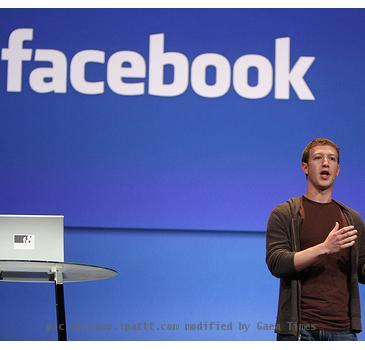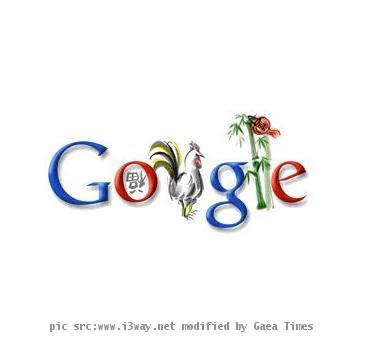Swimming with the dolphins helps Salesforce.com CEO make a splash in software industry
By Michael Liedtke, APThursday, July 22, 2010
CEO Interview: Salesforce.com’s eclectic leader
SAN FRANCISCO — Whether he’s swimming with dolphins in the Pacific Ocean or drawing inspiration from rappers, Marc Benioff has broken the CEO mold while running Salesforce.com Inc. for the past decade.
Some of his antics seem calculated to make a point about the importance of daring to be unconventional, a method that has worked well for him.
Benioff, 45, wouldn’t be a billionaire and Saleforce.com wouldn’t have emerged as an even better investment than Google if he hadn’t been able to persuade so many corporate decision makers to change their ways.
Salesforce.com rents software for managing customer relationships and delivers its product exclusively over the Internet. The concept, often called “cloud computing,” is hot now, but it was considered a pie-in-the-sky notion when Benioff started Salesforce at the height of the dot-com boom in 1999.
Back then, companies preferred to install all their software on computers sitting on their own premises. They bought prepackaged software so they could own the applications, even if it meant paying huge fees for installation and maintenance.
That mindset was so deeply ingrained in corporate America that Benioff was worried Salesforce.com might fail two years after he started the company.
There’s no such worry now. Saleforce.com has more than 77,000 customers, nearly 5,000 employees and steadily rising revenue that’s expected to hit $1.5 billion in the company’s current fiscal year.
His most impressive accomplishment of all: A $10,000 investment in Saleforce’s June 2004 initial public offering would now be worth nearly $84,000, based on the company’s July 21 stock price of $92.16. By comparison, a $10,000 investment in Google’s August 2004 IPO would now be worth about $56,000.
Benioff, who learned the art of promotion as a protege of Oracle Corp. CEO Larry Ellison, is now studying the ideas of a 26-year-old whiz, Facebook founder Mark Zuckerberg. The goal: building business tools similar to Facebook’s social networking system (Salesforce’s first attempt at this is called “Chatter.”)
When he’s not traveling around the world to meet customers, Benioff gets much of his work done at the Hawaii getaway he built with his estimated fortune of $1.3 billion. It’s where he spends about one-fourth of his time, relying on a high-definition video feed that keeps him wired with Salesforce’s San Francisco headquarters and other offices.
“Nothing will help you let go faster than swimming alongside a pod of dolphins,” Benioff told The Associated Press during a recent video interview from Hawaii. “It’s an amazing experience. It connects you back to what’s really important.”
Here are excerpts from the interview with Benioff, who wore a “Relax” T-shirt as a wooden Buddha figure loomed in the background.
Q: Do you get good ideas when you’re swimming with the dolphins?
A: I have gotten some of my best insights when I have been able to surrender myself to nature like that. I attribute Salesforce’s great performance to my ability to work in Hawaii.
I try to adopt a Zen perspective of a beginner’s mind. And I think the best way to get a beginner’s mind is to get to an environment like this where you can kind of let go.
Q: When did you know that Salesforce.com was going to be a success?
A: I still have not accepted that Salesforce.com has made it. (Former Intel Corp. CEO) Andy Grove said it pretty well, “Only the paranoid survive.” Michael Dell says it really well also. He says, “Pleased, but never satisfied.” That’s kind of how I feel, which is you have to kind of keep going and work harder.
Q: Who are some of the CEOs that have been the biggest influence on you?
A: I would say Larry Ellison, Steve Jobs, Michael Dell and John Chambers (CEO of Cisco Systems).
They are multi-decade CEOs. Each of them have at least one cycle of success and a cycle of failure behind them. They keep going no matter what. And they innovate. They have a customer-centric view.
Q: How would you describe your management philosophy?
A: Well, I think the number one thing I do is the “V2MOM” process. It stands for the vision, the values, the methods, the obstacles and the measures.
Each of one of those five things also connects to five questions. Vision, what do I want? Values, what’s most important about it? Methods, how do I get it? Obstacles, what will prevent us from having it? And measures, how will we know we have it?
Q: CEOs aren’t the only people that have influenced you. People like MC Hammer have been an influence, right?
A: I think it’s important to look for leadership and inspiration not just from the industry, but looking outside the industry too.
People who have really inspired me are people like Neil Young. He doesn’t sing for Coke and he doesn’t sing for Pepsi or Bud. “This note’s for you.” A lot of people forget about that song, but it’s a fundamental part of his philosophy. The spirit of music is in him and he can’t commercialize it.
But at the same level I have learned from a musician who does commercialize music incredibly well, will.i.am. He is a musician who is a forward thinker, very innovative, very into technology and is very into commercialization. I think there is something to learn from those two very different figures.
And MC Hammer is one of the smartest guys I have ever met, a visionary in technology and music. I also have had the opportunity to spend a lot of time with Robert Thurman, (actress) Uma Thurman’s father. He comes at leadership from a different perspective, from the spiritual side. He now chairs the department of religion at Columbia University. That’s also something that has drawn me to hearing and learning the teachings of the Dali Lama. Leadership can come in many different ways: spirituality, music, technology and, of course, government.
Q: What kinds of things make you mad?
A: The number one thing that gets me upset is if we lose a great employee to either a competitor or to do something else. It upsets me when I don’t feel like it serves that employee or the company. That happens more often now because I am not able to maintain the tight relationship that I used to have with everyone.
Q: Do you want to be Salesforce.com’s CEO for a long time?
A: Yeah, I do. I feel like it’s important for me to keep on doing the work because the amount of change is so dramatic. I think it’s my perspective of 25 years in enterprise software that’s let me make the right decisions for the company. I have doubled down in my commitment to the company.
Q: So what are the next big things for Salesforce.com?
A: When I started Salesforce, I asked a question: “Why isn’t all enterprise software like Amazon.com?” The question now really is: “Why isn’t all enterprise software like Facebook?”
Where we used to have desktops and notebooks, now it’s more likely we are going to a tablet or a smart phone.
This is really where I am spending a lot of my time. It’s a fundamental transformation. It’s about the cloud, social, mobile. It’s really inspired a new generation of wildly innovative applications that are changing entire industries. I call this the Facebook Imperative. It’s all about looking at these changes and how are they going to apply to us.
Tags: Arts And Entertainment, California, Hawaii, music, North America, San Francisco, United States



